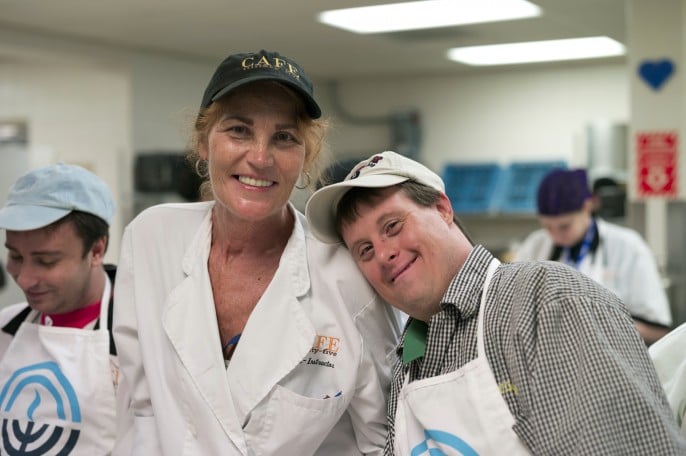-
01 February 2019

Jewish Disability Awareness & Inclusion Month (JDAIM), which begins today, is a time to pause and reflect on where we are in our journey to become more inclusive of individuals with disabilities. We can look to our tradition to find a strong Jewish imperative for inclusion, which teaches that we are all created in the image of God. Being welcoming, accommodating, and inclusive is in line with our Jewish values of kindness and hospitality. Yet, each February, we often find ourselves asking the same question we have been asking for many years. We’ve made progress, we have many examples of great inclusion, but why are we not yet at the end of this journey?
Within our tradition’s text, we can find examples of a time when inclusion may not have been seen as a Jewish value. Jewish liturgy created a blessing that was recited upon seeing an “unusual person or animal:” “Blessed are You, Lord, Our God, King of the Universe, who makes creatures different.” While on the surface, this prayer seems to praise God for diversity in nature, it says little in a positive way about our different appearances and abilities. It also reinforces the idea that these beings are not the norm in creation, a considerably disparaging statement. We also learn in Leviticus that, in biblical times, a blemished priest was not permitted to serve and could not approach the altar, just as a blemished animal could not be used for a sacrifice.
Modern Jewish disability activists have reclaimed this blessing to serve as a celebration of diversity. As a people, we have made great strides toward becoming more inclusive. We have moved from providing services to those with disabilities as an act of chesed (charity), toward viewing inclusion as relevant to all and a matter of tzedek (social justice).
At a recent meeting of Federation’s Disability Inclusion Network, a presentation by disability activist and social scientist Dr. Arielle Silverman sparked a conversation about recognizing everyone’s full humanity, treating a person with a disability as an “ordinary other,” and recognizing a person with a disability as an expert of their own needs. The individuals with disabilities within our Disability Inclusion Network shared that the difference between inclusion with a lower case “i” and a capital “I” is the difference between simply welcoming someone into a program and empowering them to be part of the community. Inclusion with a capital “I” implies a sense of agency. Inclusion requires action: righteous indignation, a questioning of the status quo, and a demand to do better.
In our role of modeling and convening collaborative groups, Federation is inspired by the 40 congregations who are part of our Synagogue Disability Working Group and the more than 100 lay leaders and community members who make up our Disability Inclusion Network. We are proud to co-sponsor Jewish Disability Advocacy Day on Capitol Hill, where Jews with disabilities and their allies convene to learn about relevant disability policy, raise awareness, and advocate with elected officials.
There are many ways for individuals and organizations to get involved:
- Attend one of the many JDAIM events or inclusion Shabbat services throughout our community.
- Participate in the ReelAbilities film festival, hosted by JCC of Northern Virginia, and view award-winning films that challenge our preconceived notions, and celebrate the diversity of our shared human experience.
- Use Federation’s online discussion guides to spark conversations at home, at board meetings, in the workplace and throughout the community.
- Explore how hiring an individual with a disability can be a win-win for your business.
Plan to ask about and provide accommodations at events to help this become standard operating procedure.
Inclusion, and specifically inclusion of individuals with disabilities, needs to be embedded into everything we do. By relying on the fact that this is a Jewish value, that we are already welcoming and inclusive, can stall us on the journey to advance inclusion. We need to make sure our inaction does not result in passive exclusion. Like we reexamined and tweaked an ancient blessing, we need to challenge the status quo. We need to advocate for inclusion with a capital “I” – for empowerment and agency.
As a community, we have a lot to be proud of and we still have a lot more to do. So, embrace JDAIM yet again this year as a reminder to continue the quest for inclusion. Embrace the concept that all Jews were standing at Sinai and we are all created in the image of God; and find an opportunity to recite the blessing that celebrates diversity and sparks us to act.
